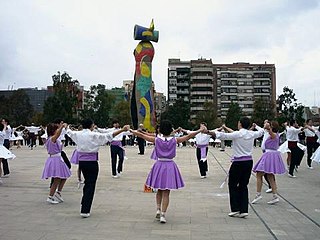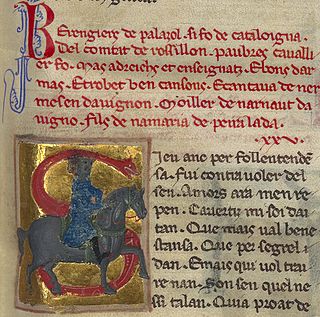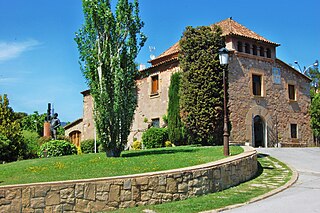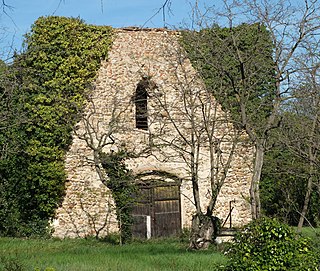Related Research Articles

The sardana is a musical genre typical of Catalan culture and danced in circle following a set of steps. The dance was originally from the Empordà region, but started gaining popularity throughout Catalonia from the late 19th century to beginning of the 20th century after the modernisation done by Josep Maria Ventura i Casas.

As Europe experienced a wave of roots revivals in the 1950s and 1960s, France found its regional culture reviving traditional music. Brittany, Limousin, Gascony, Corsica and Auvergne were among the regions that experienced a notable resurgence in the popularity of folk music. Traditional styles of music had survived most in remote areas, such as the island of Corsica and mountainous Auvergne, as well as the more nationalist lands of the Basques and Bretons.

The Assembleias de Deus are a group of Pentecostal denominations in Brazil founded by Daniel Berg and Gunnar Vingren, who came to Brazil as missionaries from the Swedish Pentecostal movement. The Assembleias de Deus are related to the worldwide Pentecostal movement, and some groups are affiliated with the Assemblies of God. Currently, the organization is one of the largest Protestant denominations worldwide.
The canso or canson or canzo was a song style used by the troubadours. It was, by far, the most common genre used, especially by early troubadours, and only in the second half of the 13th century was its dominance challenged by a growing number of poets writing coblas esparsas.

José Maria dos Reis Pereira, better known by the pen name José Regio, was a Portuguese writer who spent most of his life in Portalegre. He was the brother of Júlio Maria dos Reis Pereira, a painter and illustrator.
A cobla esparsa in Old Occitan is the name used for a single-stanza poem in troubadour poetry. They constitute about 15% of the troubadour output, and they are the dominant form among late authors like Bertran Carbonel and Guillem de l'Olivier. The term cobla triada is used by modern scholars to indicate a cobla taken from a longer poem and let stand on its own, but its original medieval meaning was a cobla esparsa taken from a larger collection of such poems, since coblas esparsas were usually presented in large groupings.

Berenguier de Palazol, Palol, or Palou was a Catalan troubadour from Palol in the County of Roussillon. Of his total output twelve cansos survive, and a relatively high proportion—eight—with melodies.
Folquet de Lunel was a troubadour from Lunel in the Languedoc. He left behind nine recorded lyric poems, including five cansos, two partimens, and two sirventes. He also wrote one longer work, the Romans de mondana vida. Folquet's birth date can be known precisely because he tells us in his Romans, written in 1284, that he was forty years old at the time.
Bernart de Rovenac, Rovenhac, or Roenach was a Languedocian troubadour. Four of his sirventes have been preserved. The attitude ubiquitous in his poetry is perhaps best expressed by these lines: Aital guerra m'agrada mas que platz, / non tals treguas ont om si'enganatz.

Cabrières is a commune in the Hérault department in southern France. It is noted for its flourishing wine industry.
Lo Bord del rei d'Arago, literally "The Bastard of the King of Aragon", is the name assigned to the composer of three coblas in an Occitan chansonnier. Lo Bord wrote two peticions and one remissio to Rostanh Berenguier de Marselha, who also wrote a fourth peticion of his own to Lo bord, but without a surviving response. This poem without a response, Pos de sa mar man cavalier del Temple, contains internal clues permitting it to be dated to between 1291 and 1310. All these coblas were edited and published by Paul Meyer in Les derniers troubadours de la Provence.
Terrasses du Larzac is an Appellation d’origine contrôlée (AOC) within the Côteaux du Languedoc in Southern France created in 2005 for red wines made from Syrah, Grenache and Mourvèdre grapes, with the acceptable additions of Cinsaut and Carignan, and grown in some of the highest vineyards of the Côteaux du Languedoc on the slopes of the Cevennes.

Manfried Sant'Anna, known artistically as Dedé Santana, is a Brazilian comedian, best known for his role in the television series Os Trapalhões, where he was one of the four protagonists.

A masia is a type of rural construction common to all the old Crown of Aragon: Catalonia, Valencian Community, Aragon, Languedoc and Provence. The estate in which the masia is located is called a mas. They are often large but isolated structures, nearly always associated with a family farming or livestock operation.
Xavier Pagès i Corella is a Catalan-Spanish composer and conductor.
Downtown Filmes is a film distributor dedicated exclusively to the release of Brazilian films.

The Battle of Mas Deu or Battle of Mas d'Eu on 19 May 1793 saw the French Revolutionary Army of the Eastern Pyrenees under Louis-Charles de Flers fighting Bourbon Spain's army of Catalonia led by Antonio Ricardos.
Guillem de l'Olivier d'Arle, also spelled Guilhem del Olivier, was a troubadour, probably active after 1260. He was from Provence, presumably the region around Arles, and he was also active in northern Italy. He was a prolific author of coblas esparsas, single-stanza poems, usually on a moral theme. The number of lines per poem vary from a low of four to a high of sixteen. Scholars Alfred Pillet and Henry Carstens, along with István Frank, counted 77 such pieces; while Oskar Schultz-Gora counted 79, and Alfred Jeanroy only 70.
Berenguier is a given name and surname. Notable people with the name include:

Aimery VI, Viscount of Narbonne and Lord of Puisserguier, was a 14th-century French noble. He was an Admiral of France from 1369 to 1373.
References
- "PC 048 Berenguier de Poizrengier". Bibliografia Elettronica dei Trovatori v.1.5.